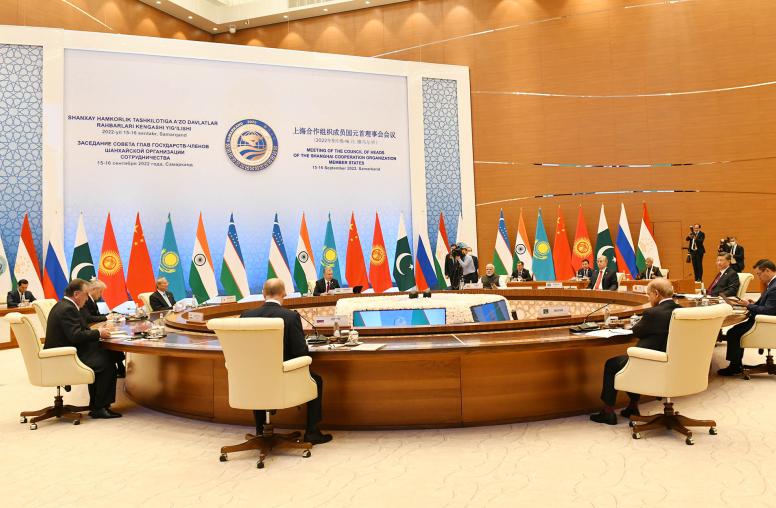 Tajikistan
Tajikistan
Featured Research & Analysis

What Does Further Expansion Mean for the Shanghai Cooperation Organization?
Last week, foreign ministers from member-states of the Shanghai Cooperation Organization (SCO) gathered in Astana, Kazakhstan. The nine-member SCO — made up of China, India, Russia, Pakistan, Iran, Kazakhstan, Kyrgyzstan, Tajikistan and Uzbekistan — represents one of the largest regional organizations in the world. And with the SCO’s annual heads-of-state summit slated for early July, the ministers’ meeting offers an important glimpse into the group’s priorities going forward. USIP’s Bates Gill and Carla Freeman examine how regional security made its way to the top of the agenda, China’s evolving role in Central Asia and why SCO expansion has led to frustrations among member states.

New Central Asian Leaders Look to Balance Relations with Major Powers
For the first time ever, all five presidents of the Central Asian republics (Kazakhstan, Kyrgyzstan, Tajikistan, Turkmenistan and Uzbekistan) met in-person with a U.S. president as part of “C5+1” summit on the sidelines of last week’s U.N. General Assembly.

China Looks to Fill a Void in Central Asia
As the Group of Seven met at the end of last week in Hiroshima, Japan, China organized a summit with Kazakhstan, Kyrgyzstan, Tajikistan, Turkmenistan and Uzbekistan, marking a new chapter in Beijing’s engagement with the region. Central Asian states are looking for a new partner to help ensure their own security against domestic rebellions, as Russia’s war in Ukraine has limited Moscow’s ability to fulfill a longstanding role as a guarantor of domestic stability in the region. While most of the summit’s public discussion focused on economic and trade issues, China noted that it would help Central Asia enhance it’s law enforcement and security capabilities, which aligns with Beijing’s intensifying campaign for “global security.”